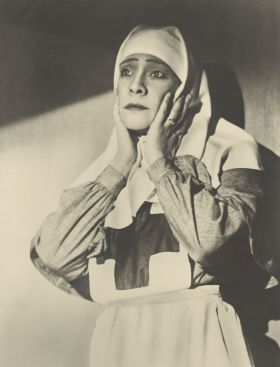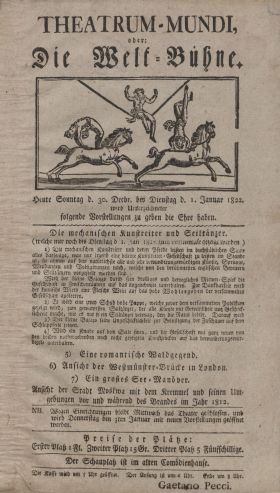Acquisitions History

Role portrait of Tilla Durieux as the Tsarina in Rasputin by Alexei Tolstoi, as staged by Erwin Piscator in the Theater am Nollendorfplatz (Piscator-Bühne), 1927
The history of the Performing Arts Archives begins with the founding of the Deutsche Akademie der Künste in East Berlin. In 1950, the Abteilung für deutsche Theatergeschichte (Department for German Theatre History) was established and managed by drama critic and Academy member Herbert Ihering. In this way, it became feasible to save and secure the many theatre collections then in the ruined city of Berlin. In 1956, when actor, director and theatre historian Alfred Dreifuß returned from exile in Shanghai, work began on building up the biographical holdings. Four years later, in 1960, the Akademie der Künste in West Berlin acquired the first of its theatre holdings, the artistic estate of the critic Alfred Kerr. In the subsequent years, both Academies in East and West Berlin systematically collected the works and personal papers of artists persecuted, defamed or murdered under the Nazi regime. Most prominent examples here are Jüdischer Kulturbund Archive (Jewish Cultural Association Archive) and the Fritz Wisten Archive.

Theatrum Mundi, playbill from the Stadttheater Königsberg, 1822
From the 1960s, the theatre departments in both Academies also began collecting the archives of their members, for example Gret Palucca, Wolfgang Langhoff, Mary Wigman, Walter Felsenstein, Maria Wimmer, Heinz Hilpert, and many more. The artists’ archives are supplemented by holdings of collectors who brought together valuable and essential material, e.g. Wilhelm Richter with his bound Collection of Berlin Cast Lists and Reviews from 1905 to 1932, as well as the archive of Franz Gauker who extensively documented the work of Kurt Hübner as general director of the Theater Bremen, and hence captures the ‘birth’ of modern director’s theatre.
In individual cases, the archives of institutions have also been acquired, usually when there is a close link to existing biographical archives. In such cases, the latter have been supplemented or replaced by the new archive as with, for instance, the Komische Oper Tanztheater Archive (Tom Schilling), the Freie Volksbühne Archive (Kurt Hübner, Peter Zadek, Hans Neuenfels), the Berliner Schaubühne Archive (Peter Stein, Moidele Bickel, Jutta Lampe) and the Volksbühne Berlin (Frank Castorf, Bert Neumann, Christoph Schlingensief, Christoph Marthaler, Herbert Fritsch).
